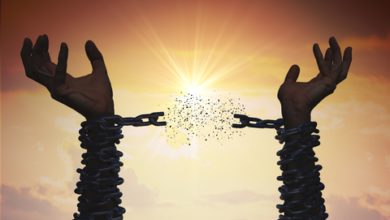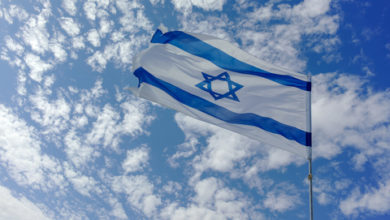What will the Other Nations Say?
G-d leads all of the nations of the world through a universal approach. Just as He took His nation out of slavery into freedom, so He brings the other nations into the light of the world. “You are for me like the sons of the Kushites, Children of Israel – that is the word of G-d. Did I not bring Israel up out of the Land of Egypt, the Philistines from Kaftor, and Aram from Kir?” [Amos 9:7]. However, while the history of the other nations comes to an end, the nation of Israel has been promised that even if it will be severely punished for its sins it will never cease to exist: “However, I will never destroy the House of Jacob” [9:8]. This different approach for Israel and the other nations is not a result of apathy towards the fate of the other nations, as can be seen from the definition of the goal of Abraham, our Patriarch: “And all the families of the world will be blessed through you” [Genesis 12:3]. Just the opposite – the eternal character of the Children of Israel serves all of humanity in that the nation of Israel provides a memory of all the other cultures of humanity. They continue to exist for all eternity through the impression that they have left in the collective memory of Israel, the nation of eternity.
As an example, the living remains of ancient Egypt consist of the mark that this country left in forming the identity of Israel. And the nation of Israel pays a heavy price for this role of adding one element after another to its character, in order to fill it up against its will – until the fulfillment of the Divine plan of the return to Zion, as is described at the end of this week’s Hafatarah (for Kedoshim, according to the custom of Ashkenaz) – [Amos 9:15].
The Haftarah that is read by the Sephardim explains the reason for the Divine interest in keeping the promise of the eternal character of the nation of Yisrael – it is “for My name” [Ezekiel 20:9,14]. The dispersion of Israel and their exile is a desecration of G-d’s name, and therefore it is necessary to redeem them even if they have not improved their actions.
The main criterion for the advance of history is the sanctification of G-d’s name. In his book “Da’at U’Tevunot,” the Ramchal explains that this entails a combination of two types of guidance: To reveal the unity of G-d, which is the main principle, and to show the proper behavior of justice.
And this leads us to a moral dilemma: How can it be that with respect to the most significant event in all of history, the redemption, the existence or lack of good deeds has no effect at all? This tension between the inevitability of redemption and arbitrary choices made by man is what makes it necessary for the nation of Israel to observe all the mitzvot in detail, in order to avoid creating a dissonance between the need for justice (which appears in the covenant in the Torah portion of Bechukotai) and the values of the path of unification, which insists that G-d is always working to glorify His name, no matter what else is happening. And that is why the Haftarah ends with the adamant demand of the Holy One, Blessed be He: “I am your G-d. Follow My laws and maintain My just actions and perform them, and sanctify my Shabbat and let it be a symbol between Me and you, in order to know that I am your G-d.” [Ezekiel 20:19-20].
Source: “AS SHABBAT APPROACHES” – a biweekly column in Shabbat B’Shabbato (Zomet Institute) See: http://www.zomet.org.il/eng – Acharei-Kedoshim 5775, issue 1571.



